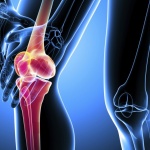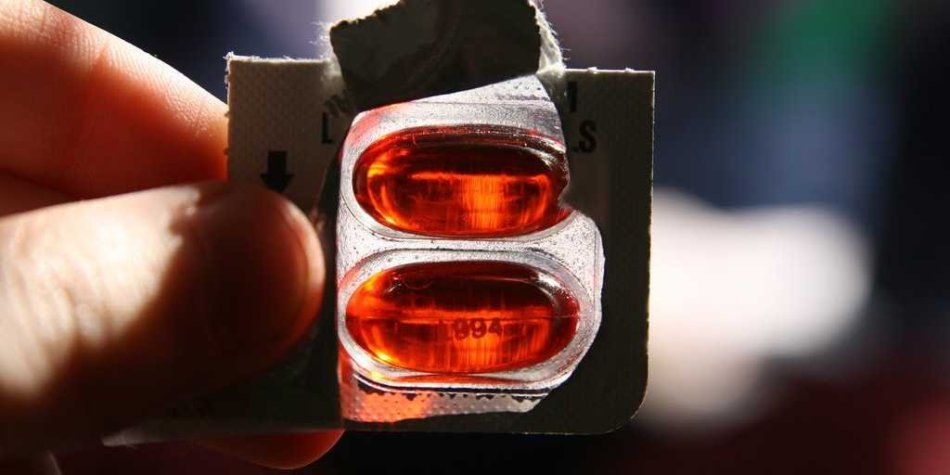The long-term effects of COVID


Sometimes things just work out a particular way. Two days ago I got the bivalent COVID vaccine and that same day Nature Medicine released a new paper on the long-term effects of COVID infection. The paper has already been getting a lot of attention and as you would imagine people are quickly trying to downplay the implications, because the facts are not looking good to those who want to minimize COVID. In fact, at this point ignoring the dangers is ignoring reality and sadly people seem to be okay with pushing that ignorance. So let’s talk COVID… again.
(more…)The mechanisms of depression


In news that will surprise almost zero depressed people, we are once again adjusting our thought process on what causes depression. But in an effort to stave off bad advice, people telling you to stop taking your medication, and just general confusion, let’s do what we do best and talk it out. First, let’s be clear, don’t stop taking your meds, it’s never a good idea, I promise, 10 out of 10 times it’s a bad idea unless you’ve spoken with a doctor or are having serious side effects. So let’s talk about the latest news, shall we?
(more…)A forgotten paper


Well it happens I guess, after looking through my posts, I haven’t seen one where I discussed another paper I’m working on (because there always seems to be many). I am like 82% sure I’ve mentioned it in passing, but I can’t find a post on it, so today we’re talking about the forgotten paper. Don’t worry we’ll come up with a better name before I finish the post, but for now let’s talk about why it slipped my mind.
(more…)Another response letter


There’s a surprise paper I haven’t talked about much. Mostly because I’m “only” second author on it, but also because as I keep mentioning things are hectic. However, we’re almost a full six months into the year and I currently have three papers (two first author, one second author) to my name and this will be number four! It’s been a good year for me, but we’re not done yet! Today I’m going to once again talk about response letters.
(more…)Effects of transcutaneous spinal cord stimulation on the brain


Transcutaneous spinal stimulation (TSS) is a relatively new approach to neuromodulation. We can activate networks in the spinal cord by injecting a small amount of current through the skin, which evokes a response in the muscles (muscle contraction). Depending on the person the electrical stimulus (the zappy time) feels either like a massage or it can be uncomfortable, not exactly painful, just not something you would go out of your way for. But the spinal cord is a two way street, so what does TSS do in the brain?
(more…)Success! Journal paper 4 of 4


I’ve been waiting for this day for years, but here we are. The fourth and final paper, what I’m calling “last paper” has been accepted for publication as of this morning! It’s been a long, hard journey and this paper didn’t make anything easier, but it’s almost over. It just needs to go to typesetting and that will be the last of last paper. As with the others, it’s time to look back and the journey last paper took and how I finally got here.
(more…)Robot paper is live!


Finally! After years and years of trying to get this published I finally have the paper out in the world. Okay, to be fair it was accepted about a month ago and I did a deep dive into the paper itself (here), but it feels a little more official now that it’s out there in the wild, or at least open-access like it should be! Granted I’ve told this story before, but indulge me as I recount for the final time why this paper almost killed me, literally.
(more…)Finalizing the figures


Okay technically they are videos, not figures, but they are demonstrating things that could be shown in figure format if we had the space. In fact, we do have one figure in the paper I’m dealing with that has stills from the video demonstrating some of the things we found. With the finalization of the response for “last paper” I need to sit down and get the code fixed to redo some of these videos, which will be a challenge.
(more…)Semi-final paper edits


Okay, with all the “big” things happening the past few days I really need to switch gears and focus on the other major deadline I’ve got coming up and that’s the response to “last paper,” which is still not due for another 2-3 weeks I believe so I still have time, but it’s not just me that needs to sign off on it, it’s all my collaborators and that is the problem. Mostly because last paper took so long in part due to disagreements within our group.
(more…)The last paper response


Well it’s been a few weeks since I got the response back for “last paper” since I have roughly three weeks left to finalize all the edits they requested, this weekend I plan on tackling most/all of it so that we can get the ball rolling with my collaborators so I can (hopefully) get the response back to the editors before the deadline they set. Because there is a deadline and I do not want to be late, mostly because it will make more work for me if I am.
(more…)The return of last paper


If you love something set it free, if it comes back it was meant to be. What a bunch of garbage. Well maybe just in this case. I’ve slowly gotten out from under the weight of not one, but four different first author journal papers I’ve been working on. Three of the four are published (with one going live any day now… I think?! That should’ve happened a week ago…), but one paper, last paper, has been a struggle all its own and now it’s back with a vengeance.
(more…)The audacity of anonymity


Peer-review can be brutal. For every one positive reviewer you get one that would rather be doing something else and they WILL let you know and WILL take it out on you. Maybe it’s because I’m still getting used to the journal publication process, but behind the veil of anonymity people can be cruel. We see, and these days somewhat expect, it from public forums like facebook, twitter, or even linkedin, but maybe I’m naïve enough to have thought it wouldn’t happen in the world of peer-review. Afterall, we’re all professionals here, right?
(more…)Characterization of interlimb interaction via transcutaneous spinal stimulation


I was debating about talking about this because I’m “only” the second author on the paper. Apparently I’ve gotten picky now that I have a handful of first author papers in review/published. I’m joking, but seriously, this paper has a special place in my heart and today I want to talk a bit about the science, but also the story behind the paper, because it is an interesting one!
(more…)Big claims and big evidence


In science, ideally, when you make a large claim, you need a lot of evidence to support it. In theory anyway, in practice with the speed of the internet, claims often get taken as truth no matter how self correcting later. The claim that vaccines cause autism for example has been thoroughly debunked over and over, but the claim still persists despite the piles of evidence to the contrary. Global warming is another good example of how having a lot of evidence doesn’t mean acceptance.
(more…)The final days of the “last paper”


Well I don’t want to get my hopes up, but I have some big news! As promised in the last, last paper update, I wasn’t going to talk about it until we had submitted the paper for review. Well as of today, last paper is FINALLY in review! Now this could be months before we get it actually published and maybe even longer if there is several rounds to the edits, but this is a big step.
(more…)Inter-lab rivalry


There’s nothing wrong with a little competition. In the field of research you’re either the first or your a footnote, so we rush to be the first when we know that other labs are on the other labs are not far behind. Our lab knew it was coming, there was already rumblings of something big coming from another lab, but when it finally came, we were both surprised, but not exactly shocked. It’s a pretty impressive paper.
(more…)The robot resubmission


Sometimes life comes at you fast, other times you’re writing a paper and four years later you’re still looking to publish it. Publishing can be like that and while I’m not the only one with this type of story, I do believe we’re finally coming to an end of the robot paper saga. I’m really hoping I don’t have a whole ass PhD before this thing gets published, that would just be awkward.
(more…)The robot paper response


Yesterday due partly to the house work I was having done, I got none of the data processed I needed to do, but I had a chance to address some of the comments I got from the reviewers on “robot paper.” The response is due in just a few days and one reviewer was very thorough with their feedback, so there’s a lot to address and not a lot of time to get it done. The good news is ~94% of the comments are addressed, the only bad news is that it isn’t 100%.
(more…)Return of the robot paper


Logically I knew I would get a response sooner or later, I mean you submit something to a journal and you’re going to get a response. Even if it’s just a screw you, you hack. Can you tell I’ve already had several of those? Well yesterday I finally got the email about the paper I wrote on the work I did in my Masters degree days, which feels like a very long time ago now that I’m almost done with my PhD. The news is good, but I’m going to be cautious.
(more…)Interrogation of spinal networks during movement preparation using transcutaneous spinal stimulation


That’s not the name of the paper, but that’s the general idea. We tend to take movement for granted, I mean most of the time we do it without thinking. I don’t look down as I’m typing these words, yet my fingers know what to do to make it happen. Similarly, we don’t really think about balancing ourselves when we walk, we just do it. So if I’m not consciously thinking about every step I take when I walk down the street, who, or what is keeping me going?
(more…)Success! Journal paper 2 of 4


Well kids, Christmas has come early! As of this morning my second of four journal papers I’ve written has been accepted for publication! Since it’s been a somewhat long and confusing road, I figure today I can remind everyone why I’m so thrilled about this paper and why this is good news for me in particular. There’s still a lot to do and more papers to publish as we go, but things are looking up!
(more…)Paper three resubmission!


This was quick even by my standards, but we’ve managed to make the changes we needed to the manuscript that came back just a few short days ago (here). I’ve got to come up with a more descriptive way to talk about these papers than numbering the order in which we did them, but that’s what I’ve been using for the moment. In any case the paper has been submitted, so what now?!
(more…)Journal paper number three is submitted!


Finally checking a few things off my list, now this will probably come back to me for edits in the next few weeks/months, but paper number three has been submitted for review! As with the last few papers, I think we can go through the process of how we got to this point and I can explain what happens now for those who’ve never submitted a journal paper before. I’m really excited, so let’s talk about the long road leading to this point.
(more…)The (maybe) final paper revisions


Okay, if I wasn’t stressed enough I got an email from hospital-PI forwarding to me the request for our manuscript. The one that I’m currently working on, as in right now. In fact, I’ve stepped away to write this because I really need a break from all that for a moment before I try to wrap it up. There have been so many changes I need to make sure that the entire document is coherent still, which is easier said than done because some of the sentences are definitely not coherent so I need to work back to figure out what we were originally trying to say.
(more…)A weekend of edits


No matter how much you stagger something, it somehow all manages to come back to you at the same time. It’s an interesting phenomenon that I’ve noticed, where suddenly everyone wants something from me all at the same time. In this case, I was hit with not one, but three paper edits that need to happen. All of the requests happened within a day of each other, so now my weekend will be spent doing my least favorite activity, editing papers.
(more…)Yet more papers!!


Well if it isn’t the week of every single thing that needs to be written needs to be done today, I don’t know what week it is. For those keeping score, I’ve successfully had one paper accepted for publication, had a random update and submitted a second paper for publication, and now I’m working on two other papers while I’m waiting to hear back about a third. What a week.
(more…)Second paper submission


Well this is an unexpected post, but here we are. I’ve officially submitted my second paper, but it’s not the paper I was expecting, it was one that I thought was going to be a while. Instead I got an email from my former PI letting me know it was ready to submit and to go ahead and do it, thus as of yesterday afternoon, paper number two is now in review.
(more…)Paper juggling


With one paper officially off my plate and another in limbo (not sure what’s going on with that one!) I have two papers that need my attention and they need it NOW! Both papers need to be finished ASAP and one of them in particular needs to get done faster than that, as in today if possible. That’s going to be hard, but since I work better with a plan I figure we can get into how and why I’m forced to work on so many papers!
(more…)Success! Journal paper 1 of 4


Psst, hey you! I got good news! I’ve officially had my first journal paper accepted for publication! I’m literally crying I’m so happy right now. My inbox has been flooded by emails from my collaborators congratulating everyone on this. It’s been a long, hard, and often painful journey, but I’ve finally, FINALLY, gotten something finished once and for all. Since this is the end of the story, let’s tell it from the beginning, one last time, so you know how we got here.
(more…)Journal papers update!


Not a typo, journal papers as in multiple. This year I’m planning on submitting three different journal papers. I’ve already submitted two and got feedback on them, so technically resubmit those. The third is still a work in progress and to be honest, there could be a fourth that I submit this year as well. Basically there’s a lot going on and it’s all pretty mindboggling that I can’t seem to get any of this off my plate. It’s a process for sure, but even though I’m still hard at work, there’s been some progress.
(more…)The science behind real life zombies

In the spirit of Halloween we bring you the science fact and fiction behind the undead. Zombies, those brain loving little guys, (and girls) are everywhere. Sure, we are all familiar with the classic zombie, but did you know that we aren’t the only zombie lovers out there? It turns out that nature has its own special types of zombies, but this isn’t a science fiction movie, this is science fact! Sometimes fact can be scarier than fiction, so let’s dive in.
Study uncovers brain changes in offending pedophiles

New research reveals that certain alterations in the brain may be present in pedophiles, with differences between hands-on offenders and those who have not sexually offended against children.
Your BMI might affect your brain function

There are plenty of reasons it’s important to maintain a healthy weight, and now you can add one more to the list: It may be good for your brain. Researchers have found that having a higher body mass index, or BMI, can negatively impact cognitive functioning in older adults.
Red meat and organs may pose a significant health hazard

Neu5Gc, a non-human sialic acid sugar molecule common in red meat that increases the risk of tumor formation in humans, is also prevalent in pig organs, with concentrations increasing as the organs are cooked, a study has found. The research suggests that Neu5Gc may pose a significant health hazard among those who regularly consume organ meats from pigs.
Oligodendrocyte selectively myelinates a particular set of axons in the white matter

There are three kinds of glial cells in the brain, oligodendrocyte, astrocyte and microglia. Oligodendrocytes myelinate neuronal axons to increase conduction velocity of neuronal impulses. A Japanese research team found a characteristic feature of oligodendrocytes that selectively myelinate a particular set of neuronal axons.
Cold medicine could stop cancer spread

Bladder cancer is the seventh most common cancer in males worldwide. Every year, about 20,000 people in Japan are diagnosed with bladder cancer, of whom around 8,000–mostly men–succumb to the disease. Bladder cancers can be grouped into two types: non-muscle-invasive cancers, which have a five-year survival rate of 90 percent, and muscle-invasive cancers, which have poor prognoses.
Female brains change in sync with hormones

Although it has already been known for some time that the brain does not remain rigid in its structure even in adulthood, scientists have recently made a surprising discovery. The brain is not only able to adapt to changing conditions in long-term processes, but it can do this every month.
Untangling a cause of memory loss in neurodegenerative diseases

Tauopathies are a group of neurodegenerative disorders, including Alzheimer’s disease that are characterized by the deposition of aggregates of the tau protein inside brain cells. A new study reveals that the cutting of tau by an enzyme called caspase-2 may play a critical role in the disordered brain circuit function that occurs in these diseases.
High cholesterol triggers mitochondrial oxidative stress leading to osteoarthritis

High cholesterol might harm more than our cardiovascular systems. New research using animal models suggests that high cholesterol levels trigger mitochondrial oxidative stress on cartilage cells, causing them to die, and ultimately leading to the development of osteoarthritis.
Vitamins A and C help erase cell memory

Vitamins A and C aren’t just good for your health, they affect your DNA too. Researchers have discovered how vitamins A and C act to modify the epigenetic ‘memory’ held by cells; insight which is significant for regenerative medicine and our ability to reprogramme cells from one identity to another.
Doc versus machine

Increasingly powerful computers using ever-more sophisticated programs are challenging human supremacy in areas as diverse as playing chess and making emotionally compelling music. But can digital diagnosticians match, or even outperform, human physicians? The answer, according to a new study, is “not quite.”
New sensor material could enable more sensitive readings of biological signals

High-tech prosthetics, computers that are controlled by thought, the ability to walk or even move again, these are just a few of the promises of technology. Unfortunately, while the tech is — mostly — up to the challenge, getting the biology side of things to cooperate has been difficult at best, but that could change. Now, scientists have created a material that could make reading biological signals, from heartbeats to brainwaves, much more sensitive.
First demonstration of brain-inspired device to power artificial systems

New research has demonstrated that a nanoscale device, called a memristor, could be used to power artificial systems that can mimic the human brain. Artificial neural networks (ANNs) exhibit learning abilities and can perform tasks which are difficult for conventional computing systems, such as pattern recognition, on-line learning and classification.
Mental illness genetically linked to drug use and misuse

There are many reports of drug use leading to mental health problems, and we all know of someone having a few too many drinks to cope with a bad day. Many people who are diagnosed with a mental health disorder indulge in drugs, and vice versa. As severity of both increase, problems arise and they become more difficult to treat. But why substance involvement and psychiatric disorders often co-occur is not well understood.
Scientists find new path in brain to ease depression

Scientists have discovered a new pathway in the brain that can be manipulated to alleviate depression. The pathway offers a promising new target for developing a drug that could be effective in individuals for whom other antidepressants have failed. New antidepressant options are important because a significant number of patients don’t adequately improve with currently available antidepressant drugs.
Revising the meaning of ‘prion’

A team of scientists are redefining what it means to be a prion–a type of protein that can pass heritable traits from cell to cell by its structure instead of by DNA. Although prions are infamous for causing Creutzfeldt-Jakob disease, fatal familial insomnia, and bovine spongiform encephalopathy, commonly known as mad cow’s disease, the present study indicates that prions identified in yeast, and possibly in plants, and other organisms may be beneficial.
For women, caffeine could be ally in warding off dementia

Among a group of older women, self-reported caffeine consumption of more than 261 mg per day was associated with a 36 percent reduction in the risk of incident dementia over 10 years of follow-up. This level is equivalent to two to three 8-oz cups of coffee per day, five to six 8-oz cups of black tea, or seven to eight 12-ounce cans of cola.
Sugar gives bees a happy buzz

An unexpected sugary snack can give bees a little buzz and appears to lift their mood, even making them optimistic, according to research that suggests pollinators have feelings, too. Since emotions are subjective and difficult to measure—particularly in animals—researchers looked at how bees’ behavior changed after they were given a sip of sucrose solution.
























